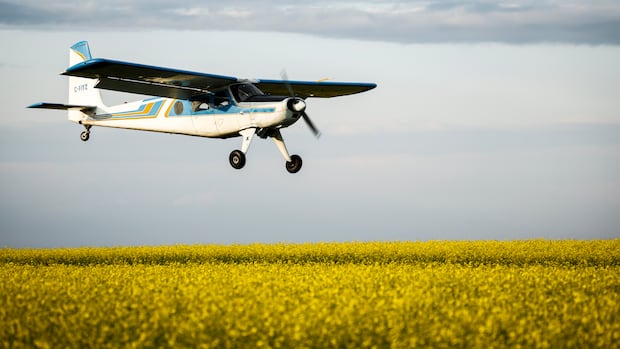The president of the Canola Council of Canada expressed disappointment over the recent funding announcement by Prime Minister Mark Carney, stating it does not adequately address the challenges faced by the industry due to a significant Chinese tariff. Chris Davison, speaking on Rosemary Barton Live, highlighted the negative impacts on exporters and processors, whose assets and infrastructure are currently under strain.
Carney’s commitment includes new incentives for biofuel production and over $370 million in support for domestic canola producers. He also mentioned plans to adjust Canada’s Clean Fuel Regulations to promote the Canadian biofuel industry, raise loan limits for canola producers to $500,000, and invest in diversifying trade to aid agriculture sectors.
The funding measures come in response to China imposing a 75.8 percent tariff on Canadian canola last month, seen as retaliation for Canada’s 100 percent tariff on Chinese electric vehicles. Davison emphasized that the canola industry is not seeking subsidies but rather a resolution to the trade dispute, warning of escalating negative impacts if the tariffs persist.
Saskatchewan-based canola farmer Rob Stone estimated potential losses of up to $150,000 on his farm’s canola production if prices drop due to the trade conflict. Despite acknowledging Canada’s biofuel investments, Stone emphasized the importance of the Chinese market for Canadian canola sales. He expressed confidence in the government’s ability to navigate the ongoing trade tensions.
In a separate development, China extended its investigation into Canadian canola imports, citing the complexity of the case and granting a six-month extension for negotiations. This announcement coincided with a visit by Saskatchewan Premier Scott Moe and Carney’s parliamentary secretary, Kody Blois, to China for discussions on trade matters.
A proposal by Premier Moe to remove tariffs on Chinese electric vehicles received mixed reactions, with Conservative Leader Pierre Poilievre expressing concerns about potential security risks. Davison noted positive steps in engaging with the Chinese government and emphasized the need for dialogue to resolve the trade issues effectively.
Davison also commented on the possibility of revisiting tariffs on Chinese electric vehicles as part of the broader strategy to address the canola trade dispute, stressing the importance of understanding the necessary actions to reach a resolution.
The Canola Council of Canada and industry stakeholders continue to monitor developments and engage with government officials to address the challenges posed by the trade conflict with China.



